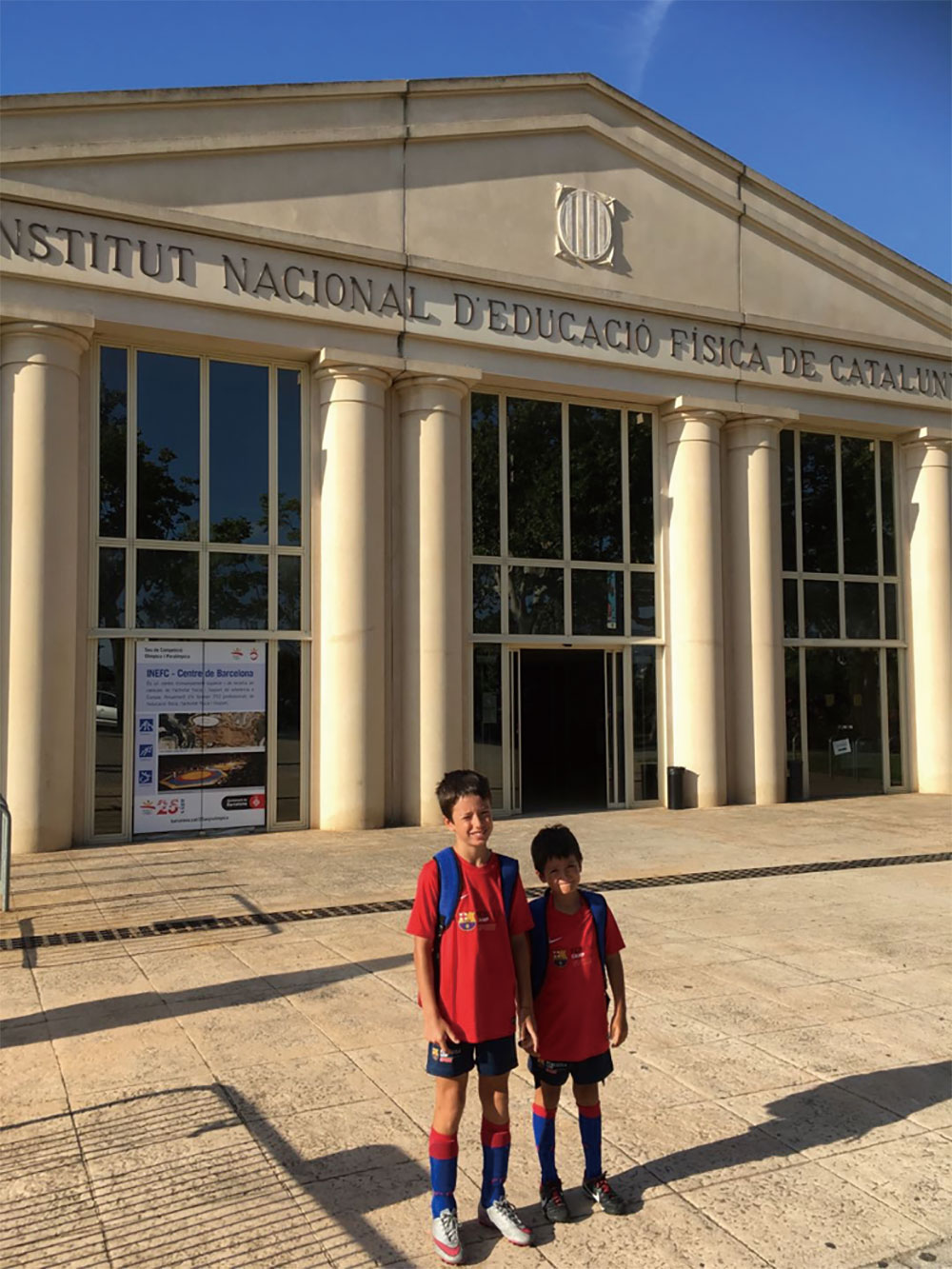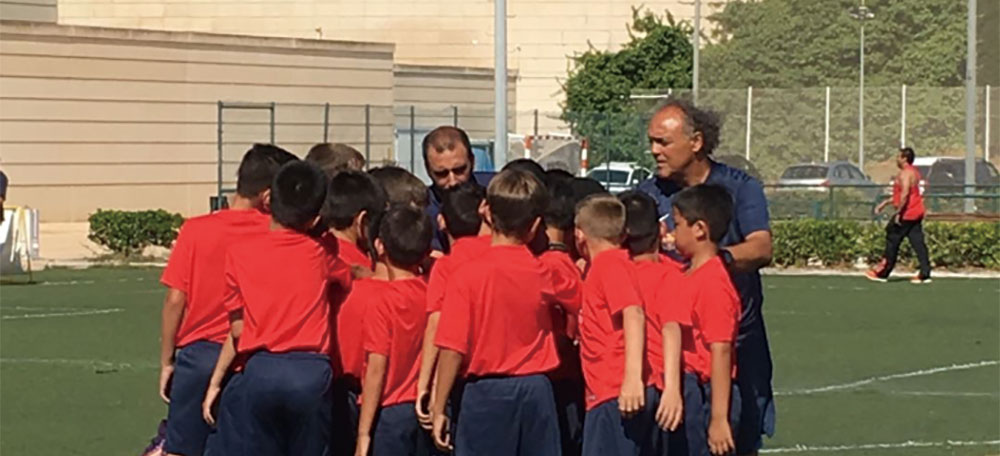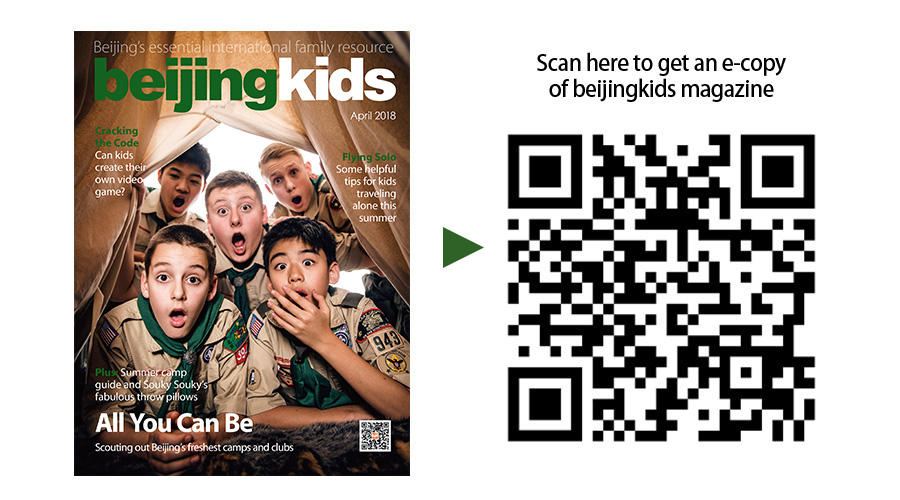“This is me and some of my friends from camp. We’re on our way to the daily morning assembly – I was completely lost when it came to singing Danish songs.” Sixteen-year-old Coco flips through the photos on her phone and smiles as another good memory pops up. “This is from our day trip to Copenhagen. We got to go to Tivoli Gardens.”
Coco studies at Dulwich College Beijing (DCB). Her mother is half-Chinese, half-German while her father is Danish. She has lived in Beijing almost all her life but when asked where she’s from, she tends to reply,“I’m Danish.
“I was born in Denmark, and although I only lived there the first year of my life, I have always felt a special connection with Denmark.” Coco loves spending time with friends and relatives in Denmark, and she can never get enough of Danish food.
It was Coco’s mom Nina who first read about the Danes Worldwide summer camps. They are specially designed for children with a Danish background but living abroad. The emphasis of the school is to learn Danish, a language spoken by roughly 5.5 million people – the equivalent of the population of Chaoyang District.
However, the bonding among students normally takes place outside the classroom, be it at the weekly bonfire, at Thai boxing class, at disco nights, or around the arts and crafts table.
When it was time for Coco to leave for camp in July 2017, she felt excited and scared at the same time. She knew that she would be the youngest participant in her age group, having just turned 15. And she worried about everything being in Danish.
“On the first day, I had two options,” she recalls. “I could either accept my mom’s offer to drop me off at camp or take the bus with the other students from Copenhagen. I chose the latter, well aware that it would be the first of many moments where I would feel be stepping out of my comfort zone.”

Giacomo (left) and Daniel ready for their first day at FC Barcelona Summer camp. FC Barcelona Summer camp.
Danish Full Immersion
Coco ended up making friends already on the three-hour bus ride from Copenhagen, and as she arrived at the beautiful facility on the island of Funen, she was shown to her room and introduced to her two roommates, both from France. One of the two girls spoke a bit of Danish, and as for Coco, she soon realized that she had no need to worry about her Danish skills.
“On the first day, we had to sit a language test, which is essentially designed to assess your level so you don’t get lost, but you don’t get bored either,” she explains. She recalls the test as being surprisingly easy and started camp on a high and with a confidence boost as she was placed on the highest level.
As the three weeks went by, both the friendships and the cultural awareness grew stronger. Students were exposed to Danish culture and language every day, all day long. Coco was particularly happy to learn about Danish regional traditions that kids who live abroad are normally not familiar with.
“The only negative thing I can think of is that it was hard to, so to speak, break the linguistic groups outside the classroom,” she says. “For example, there was a group of boys from Germany who preferred to always speak German together, and I sometimes found it difficult when the French girls started speaking French to each other even when I was around.”
But at the end of the day, Coco doesn’t blame them. She thinks it is only human to stick to what you know and to whatever makes you feel more comfortable; especially in a setting that is somehow both familiar and foreign at the same time. She is still in contact with many of her fellow students from summer school and knows for a fact that they all benefited immensely from the experience.
“Not only did our level of Danish improve, we also found a new sense of belonging in Denmark. I cannot wait to see my friends from summer school again this coming July. We will meet up in Denmark, since we all tend to go there on holidays every summer,” she says.

Team spirit!
Barça Forever
In the summer of 2017, 7-year-old Daniel and 10-year-old Giacomo (both students at DCB) saw their football dream come true when they went on a one-week football camp organized by FC Barcelona. It was a team they were introduced to as infants, with dad Cesar being not only a born and bred Barcelonian, but also a passionate fan of the world-famous local team.
On a steamy hot July morning in 2017, mom Alessia (who is Italian) dropped off the boys at the National Institute for Physical Education of Catalonia, and Daniel could hardly believe his luck when he realized he was going to be playing for the team named after his idol Lionel Messi.
The young players – of different nationalities but sharing the same dream – quickly got into the daily rhythm at camp.
“We would do a long warm-up followed by two hours of technical skills training,” Giacomo says. “By the end of our warm-up, the heat was already almost unbearable.”
Swimming classes took place right before lunch, and Daniel has particularly fond memories of the lunch served at camp.
“I loved the food. We would usually have fish or pasta, and we also got pizza one day,” he recalls.
In the afternoon, teams would move off the pitch and into the classroom for a lesson, quiz or film about FC Barcelona and the club history. For Giacomo, the highlight of the week was the field trip to Camp Nou, the home stadium of FC Barcelona – and Europe’s biggest stadium with a seating capacity of almost 100,000 people.
“Més que un club”- More Than a Club
“One might argue that signing our boys up for summer camp with FC Barcelona was all about the football,” mom Alessia says, “but actually it was much more than that. Listening to Spanish (and to Catalan) all day long was, without a doubt, good for the boys and from a cultural viewpoint, one should bear in mind that FC Barcelona, is an institution in itself. It is the pride of Barcelona and we felt that there was an added cultural value in this particular summer camp for us.
“We do our best to strengthen the boys’ ties with Europe, and I should add that, for fairness, the boys went to an AC Roma football camp two years ago in my beloved hometown Rome!” she laughs.

Photos: Courtesy of Lise Floris
This article appeared on p52-53 of beijingkids April 2018 issue




